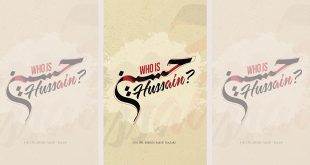This work treats in one volume the most important fields in Islamic studies: Persian literature and philology; Islamic history and historiography; Arabic literature and philology; and Islamic philosophy and jurisprudence.
The essays are representative of the fields in which one of the most illustrious Arabists and Persianists in the world, Ahmad Mahdavi Damgani, has been an indispensible contributor for close to 65 years.
The articles in this volume are dedicated to Professor Ahmad Mahdavi Damghani for the breadth and depth of his interests and his influence on those interests. They attest to the fact that his fervor and rigorously surgical attention to detail have found fertile ground in a wide variety of disciplines, including (among others) Persian literature and philology; Islamic history and historiography; Arabic literature and philology; and Islamic philosophy and jurisprudence. The volume has brought together some of the most respected scholars in the fields of Islamic studies and Islamic literatures, all his prior students, to contribute with articles that touch on the fields Professor Mahdavi Damghani has so permanently touched with his astonishing scholarship and attention to detail.
Table of Contents:
Introduction
Tabula Gratulatoria
Selected Bibliography of Professor Ahmad Mahdavi Damghani
Part I: Classical Persian Literature and Philology
Moving toward the Modern: The Nationalist Imagery of Malik al‑Shu‘arā Bahār
Old Iranian Motifs in Vīs o Rāmīn
Astronomical Poems from the “Four Corners” of Persia (c. 1000–1500 CE)
Moving from Persian to Arabic
The Iconic Sībawayh
Naming Shuʿūbīs
Part III: Islamic Theology, Islamic Jurisprudence and Islamic Philosophy
Prioritizing Metaphysics over Epistemology: Divine Justice (‘Adl) and Human Reason (‘Aql) in al-Shaykh al-Mufīd’s Theology
Returning to God through His Names: Cosmology and Dhikr in a Fourteenth-Century Sufi Treatise
Friendship in Islamic Ethical Philosophy
The Poetic Syllogism: Foray into an Inductive Research Proposal
The Scattered and the Gathered: Abū Ḥayyān al-Tawḥīdī’s Infrequently Asked Questions
‘Aql (Reason) in Modern Shiite Thought: The Example of Muḥammad Jawād Maghniyya (1904–79)
Ṭūsī Did Not “Opt Out”: Shiite Jurisprudence and the Solidification of the Stoning Punishment in the Islamic Legal Tradition
ʿAlī’s Contemplations on this World and the Hereafter in the Context of His Life and Times
Part IV: Islamic History and Historiography
Al-ʿAṭṭāf b. Sufyān and Abbasid Imperialism
An Early Arabic Conversion Story: The Case of al-Faḍl b. Sahl
A Translation of the Prolegomena to Żiyāʾ al-Dīn Baranī’s Tārīkh-i Fīrūzshāhī
Bibliographic Information
Title: Essays in Islamic Philology, History, and Philosophy
Editors: Alireza Korangy, Wheeler M. Thackston, Roy P. Mottahedeh, William Granara
Publisher: Walter De Gruyter Inc (May 24, 2016)
Language: English
Length: 456 pages
ISBN: 978-3110313727
Pub. Date: May 24, 2016
 Ijtihad Network Being Wise and Faithful Muslim in the Contemporary World
Ijtihad Network Being Wise and Faithful Muslim in the Contemporary World
